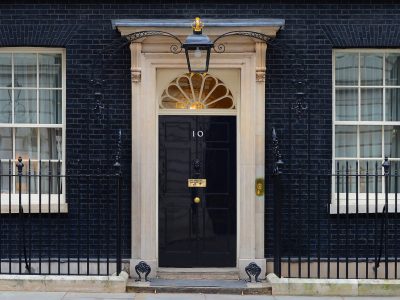This has been another tumultuous period in British politics culminating with the resignation of the Prime Minister. This had looked inevitable once her mini-budget had to be reversed following the loss of market confidence. The Prime Minister’s diagnosis of the need to do more to increase the growth rate was correct, but sadly the policies she prescribed made the situation worse and it’s right that she has resigned.
We knew that Liz Truss was inheriting a difficult position a few weeks ago with the ongoing cost of living crisis, the significant NHS backlogs, the war in Ukraine and the resulting serious issues with energy prices and supply. To those crises we can now add the market turmoil and the increases in interest rates which are so painful for those with mortgages and will worsen the public finances given the amount of debt we owe – and our ongoing need to borrow.
We should have a new Prime Minister in place by the end of next week, in time for the critical statement by the Chancellor on 31 October setting out the details of the public finances and proposed measures to bring borrowing under control. Regrettably it looks very likely that this will include some difficult measures including tax rises and spending cuts. We will need the new Prime Minister and their team to present a coherent plan that we can unite behind to avoid any further market turmoil.
There has been speculation that these measures should include restricting the increases in the state pension and benefits next April to less than the inflation rate of 10.1%. While increases of this level will represent a significant cost, we cannot seek to balance the books on the backs of the least well off and those unable to work to earn extra money. The state pension has never increased by less than inflation and I’m glad the outgoing Prime Minister confirmed the increase would indeed be 10.1%. We should do the same for benefits too. We can’t expect people livings on the least to get through next winter with less money in real terms than this one.
There have been encouraging signs that global gas prices have started to fall. I hope that this continues and signals that efforts to boost supply and reduce demand around the world have stabilised the position. There are however significant risks this winter and next that in the event of a lengthy period of cold weather we might run out of gas. In the short term we all need to be careful with our use – to reduce our bills and protect supply.
In the longer term we need to do more to obtain secure domestic sources of energy including nuclear, wind solar – and fracking for our own gas. None of these are easy – and very often applications are unpopular. The key thing is to ensure we develop these in areas where they have the least impact and that all applications are properly considered through the planning process with local people consulted. We’ve gone further on fracking and proposed requiring actual local consent which is not required for other planning issues. Again, none of this is easy or popular but relying on cheap imports from abroad is no longer a viable strategy.

